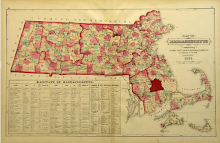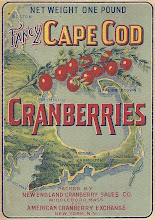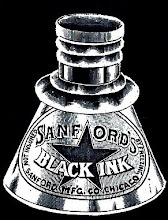
Saturday, October 17, 2009
Marconi in Middleborough

Following the construction of his wireless telegraphy station at South Wellfleet, Massachusetts, in 1901-02, Gugliemlo Marconi (1874-1937) was a frequent visitor at the Middleborough railroad station where he was required to change trains between Cape Cod and New York. During one such visit, the famous Italian who proved that the sending of telegraphic signals by means of radio waves was possible, was interviewed by a young James F. Creedon in the early 1900s. Many years later, in 1951, Creedon recalled his meeting with the future Nobel Prize winner:
Marconi was a frequent visitor in Middleboro. Not for a social stop, but it so happened he was journeying from his wireless station at Wellfleet to New York where he had headquarters.
There was considerable interest and a bit of newspaper publicity from time to time about what he planned to do. And that activity brought up many inquiries about what might be expected. City newspapers, always alert to delve into the unusual, had many questions to ask about what was going on.
And it happened to be the chore of the Middleboro correspondent, J. F. Creedon, to ask the questions and gather the information from Marconi himself. He was intercepted at the Middleboro railroad station, between the time he arrived on the up-Cape Cod train and the time he took the boat train to Fall River.
At that time he was a comparatively young man, faultlessly dressed, with an attractive fur coat with a fur collar, at this time of year. He had an uneasy way, and during the time he was in Middleboro awaiting the train change he never sought a seat in the station. Instead he busied himself walking the station platform, impatiently awaiting arrival of the other train.
Except that when he was asked about his new communications method, which seemed so unreal then, he would explain its manner of operation and what he expected would develop from it. He was a considerate man and did his best to explain the details to a juvenile writer and questioner, who didn't have too much background in matters electrical to digest it all.
He was co-operative and felt it would go a long way to speed up long distance communications, without wires by land or cables by sea.
Illustration:
Guglielmo Marconi, photograph, early 20th century
Source:
Brockton Enterprise, "Recalls Chat with Marconi", December 13, 1951.
Subscribe to:
Post Comments (Atom)






















+of+Smoky+Mountains+018.jpg)
0 comments:
Post a Comment